“It’s like you could feel moss growing on your teeth.”
Dian Brooks
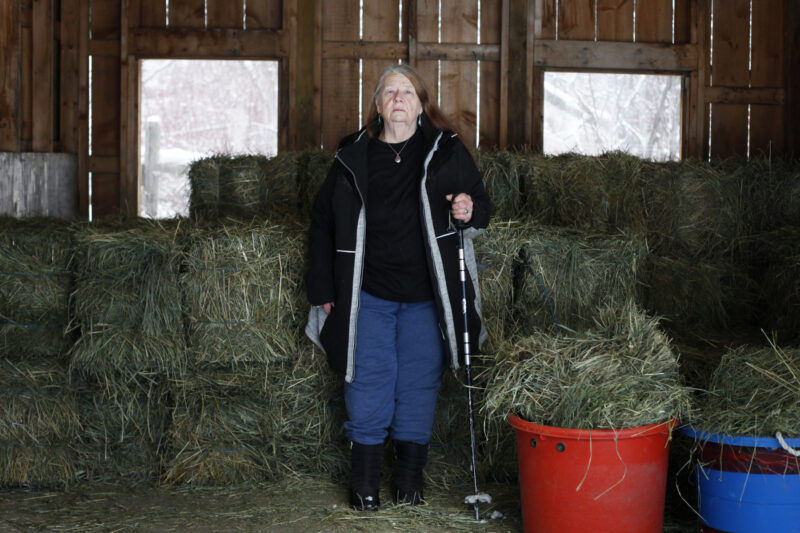
Originally from Ontario, Dian and her five siblings were “products of a broken heart.” She grew up moving every few years from place to place, often living in houses with no indoor toilets or running water. Her mother worked three jobs, so Dian and one of her brothers were often responsible for their younger siblings. “We had clothes on our back. We had a roof over our head. And we had food in our bellies, and we had each other. We didn’t feel sorry for ourselves,” Dian says.
As an adult, Dian worked as a social worker and employment counsellor. She and her brother Danie, a retired computer programmer, lived in Beaverton, Ontario, until a 6-foot snowfall blocked their front door and forced them to climb up the outside stairs to get into their house through the second floor. That’s when they decided that enough was enough. They “stuck a pin in a map and decided that BC was the place to come.” In the Lower Mainland, Dian became a foster parent to two Indigenous boys, both of whom died tragically when they were older.
For the past fifteen years, Dian and Danie have lived in a house 10-kilometres outside of the Princeton town boundary on highway three east. Now retired, she still uses her career skills to help people in her community find jobs. She also looks after the kids of her acquaintances if needed.
Dian frequents Princeton for the essentials like grocery trips, but her dislike for crowds means she’s always happy to return back home, a place that she calls her “sanctuary.” She says she prefers individual people that she can learn the stories of compared to “faceless crowds” of people. Her youngest brother will say that Dian spends “ninety nine percent of her day” communicating with about a “thousand people.” Though Dian says this is “a very huge exaggeration,” she contends that she does indeed talk to a lot of different people regularly.
A creek runs around the 10-acre property where they have dogs, cats, horses, and a turtle. Dian, who has multiple disabilities and had a knee replacement a few years ago, had been taking care of the animals and providing daycare for a little boy whose parents had moved to Princeton. She had just finished her “seven months shopping” trip, stocking the shelves and freezers for the winter months, when the Similkameen and Tulameen rivers overflowed their banks and dikes and caused devastating flooding to the Princeton area.
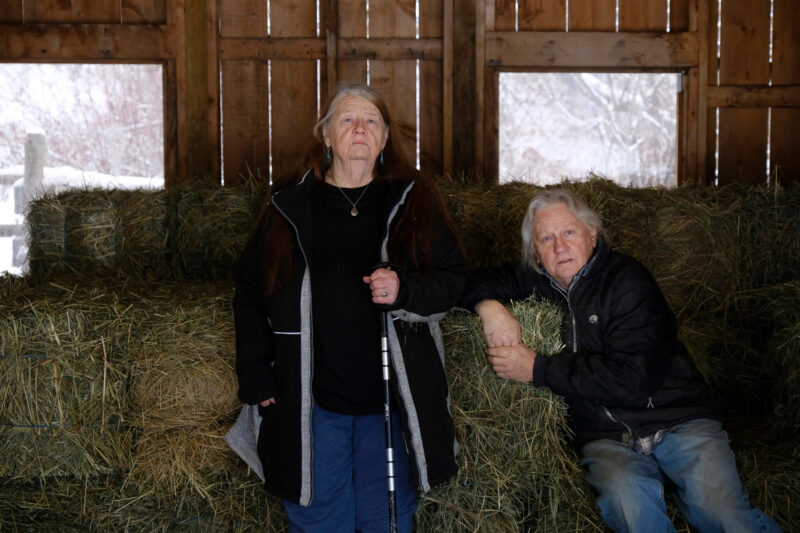
Dian Brooks and her brother Danie Brooks at their home in Princeton, Canada. (CDP Photo/Jen Osbourne)
I heard the phone ring at about one o’clock in the morning and I didn’t pay too much attention. Then Danie got up and he went outside. Again, I didn’t pay too much attention. At about two o’clock Danie says to me, “Get up! get up now!” I got up and I’m standing in water up to my ankles.
By the time I get dressed, the water’s up to my knees. Then, it’s like almost up to my thighs. What’s happening? He said, “There’s a flood. Get the dogs upstairs. Get the cats upstairs.” So I went to put my coat on and he said, “Where are you going?” and I say, “I’m going to get the horses and put them on higher ground.” He said, “No you’re not. You’ll drown.”
He went out to do it. I’m getting the dogs, the cats, the turtle, and the food and I’m putting them upstairs. And I’m splashing through water going up the stairs. It takes him half an hour, and he comes in and he is blue because the water is frigid and it’s filthy. And he said to me, “If you had not taught your horses to come when they were called by name, they’d have been dead.” Because he went out and he was wading through it and practically swimming through it to get to them. And he called them and they swam out to meet him. And he opened the gate and let them out on the higher ground.
So we got upstairs, but we didn’t get any food upstairs. So we were two days, essentially, without food and water. Our neighbour to the west called everybody that she could think of to tell people that we were stranded here. She was on Facebook telling people that we were stranded here as well—the search-and-rescuers. They couldn’t get in here. The flood waters were just too high.
You couldn’t see anything but water. Not only in the front, where it used to be a creek. But the whole back yard was absolutely covered in four feet of water. And it was raging. It wasn’t just gently lapping, like a lake laps against a boat. It was raging. You couldn’t move anything. It was that fast and that horrific.
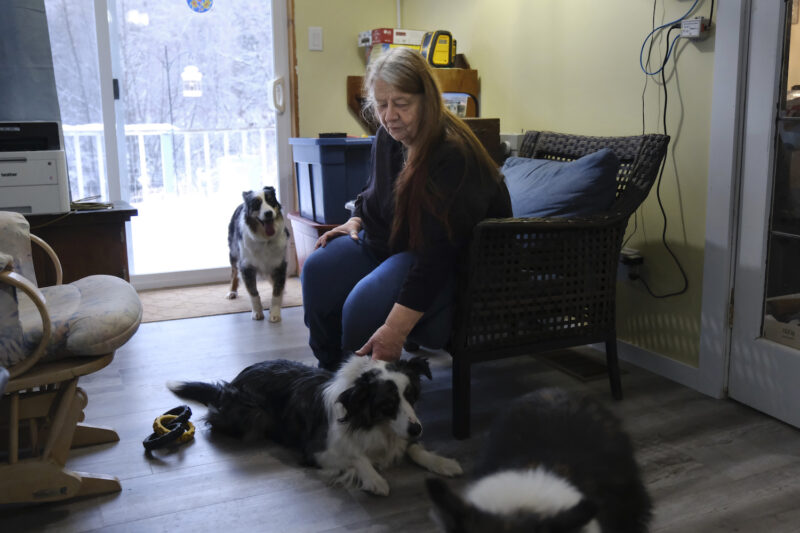
Dian Brooks pets one of her four dogs at home in Princeton, Canada. (CDP Photo/Jen Osborne)
The spare room has these sliding glass windows that looked down on our dining room and living room. I looked down and all you could see was our furniture bobbing around: very heavy oak table, chairs. You know how heavy sleeper couches are? They’re just bobbing around like little toys, in all this water. In the conservatory, the doors are just about off the hinges. The furniture that was in the conservatory is floating around in the front room and the dining room. Looking down at everything bobbing in the water and thinking, “There goes our house. There goes everything that we have worked for our lives. We have just lost everything.” And then thinking, “Oh wait a minute. We’re alive and the dogs are alive and the cats are alive. And the horses are alive. That’s what’s important.”
It was two days before they could get in here. And you can smell this horrible, rotten stench. It’s like you could feel moss growing on your teeth. Here’s a very unsavoury aspect of this. Because you can’t let your dogs out, they’re crapping, peeing and feeling bad about it. They’re holding on to it as long as they can. And you’re doing the stuff that you can to clean it up. But you have nothing that you can do that with effectively, and that’s adding to it. You can’t get washed. And you can’t do the stuff that you normally do. You can’t brush your teeth. You can’t brush your hair, you can’t do anything. I did have my iPad. That’s how I knew that my neighbour was frantically trying to get us out because I could see her messages on Facebook.
Then the flood waters receded enough that the search-and-rescue people could come in and get me. They had to bring a boat in and float me out. Danie stayed behind. He went over to the neighbours and stayed with the neighbours for a while. The search-and-rescue people took me to the Sandman Inn in Princeton.
When I was in the motel, in town, people came and brought stuff. Who didn’t help? The government didn’t help. Where’s the DFA [Disaster Financial Assistance] right now? I’m told, “Oh, well, you know, they’re working in Merritt, but it might be a year. We should keep receipts.” Well, where do you get the money, when you’re on a small pension?
I spent my days resourcing. I spent my days filling out applications. I spent my days talking to people, in some cases, talking people down from ledges: other people who were in the same boat and who were feeling pretty despondent. The motel that I was at initially, there were a lot of special needs people. There were people that we knew. And so I would talk to them. You know, like, “This is not forever.” A lot of them, and a lot of people in Princeton are still out of their homes.
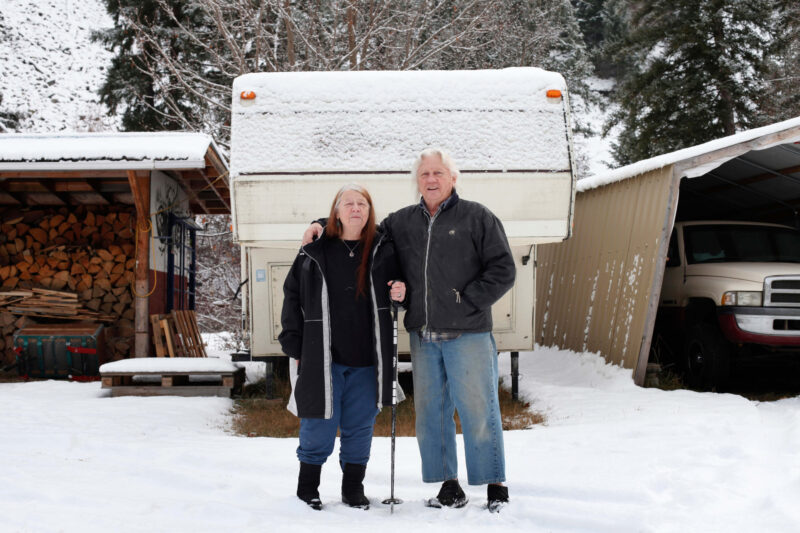
Siblings Dian and Danie Brooks in front of the trailer they lived in while repairing their house in Princeton, Canada. (CDP Photo/Jen Osbourne)
We found somebody in Tulameen that was selling an older travel trailer for $500 and we bought it. We had it towed down here [to our property]. It was way cheaper than $4,000 a month [that] motels in Princeton are charging. That’s where I’ve been living. No insulation, no heat. We had no running water. My brother and my older brother cobbled a pump together. They ran a hose upstairs to the toilet. We carry drinking water in from town.
A lot of people in Princeton are still out of their homes. I’m still in the trailer. I think that we are fortunate to be here, regardless. There’s a great sense of relief because we can do day-to-day stuff. The cats are back, the horses are back.
When we started cleaning up, we are slipping and sliding through the mud and the muck and the guck. We are throwing stuff out and we are burning stumps. I’m carrying the photo albums that have the pictures of my dead mother and my dead brother and my dead boys. And I’m thinking, I’ll never recover those. Yeah, that’s a wrench. And all I can think of is: “I’ve got the memories and it’ll have to do.”
Most of the furniture in our house, [Danie] made or my other brother made. All my kitchen cupboards were a birthday present. It’s history and its sentiment. I’m looking at our house now. And it’s not there. We have an old school chair that’s familiar. A table that we’ve had for a gazillion years that we’ve probably refinished between my brother and I six times. Nothing else, nothing else is familiar. And the thing that you keep saying to yourself over and over and over is: “But the animals are alive and we are alive and we can start again.”
I don’t think that there’s a place that has not been affected by this. Flooding here is an annual event. But it’s never come this far, never done anything like this atmospheric river. How much do we tamper with nature before nature fights back? I think nature is fighting back big time. But I understand that if there’s an easy way to do things, and it’s a profitable easy way, that’s the way to go. That’s always been the way to go. And that’s why we have so very, very few mega-rich people and that’s why our economy is driven by oil. It’s just easier to burn forests. It’s just easier to farm salmon. It’s just easier to drill holes and frack.
Even if we use gas and oil, how many people think nothing about getting their car and driving two blocks when they could walk? We have the kind of lifestyle that says that you have to shower at least once a day. We have a lifestyle that says, you have to do this and this and this and this and this. And nobody questions it anymore. If you don’t do that, then you’re dirty. If COVID-19 taught us nothing else, it taught us that a whole bunch more people could work from home with minimal disruption to the service. And there’s other things. Will people seriously look at them? I don’t know.
This testimony was originally published in The Tyee, on June 6, 2023.
Related Stories
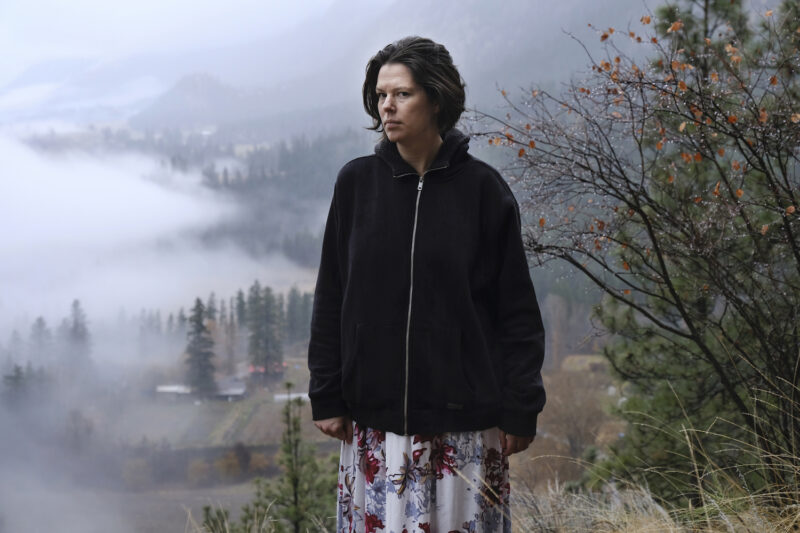
Micha Kingston, Lytton, Canada
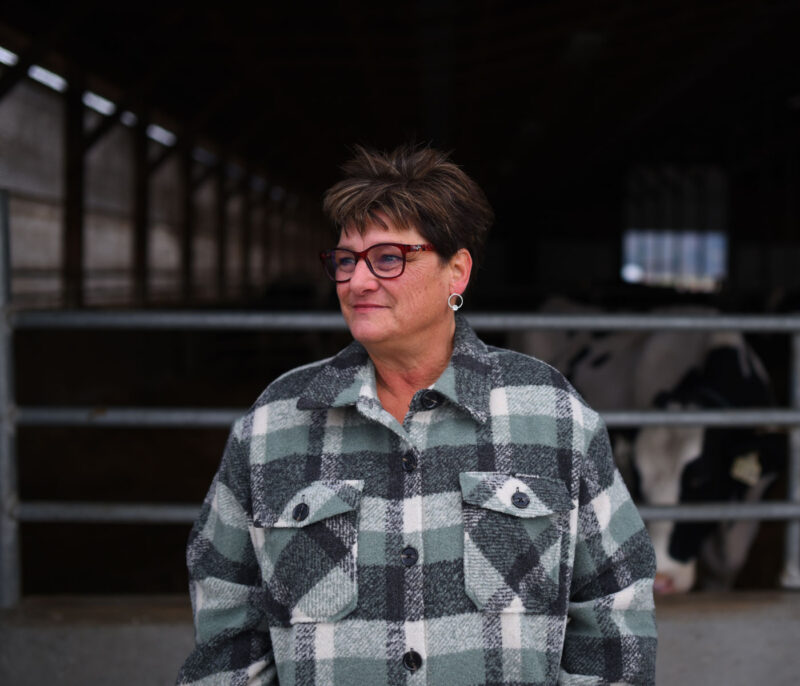
Alison Arends, Sumas Prairie, Canada
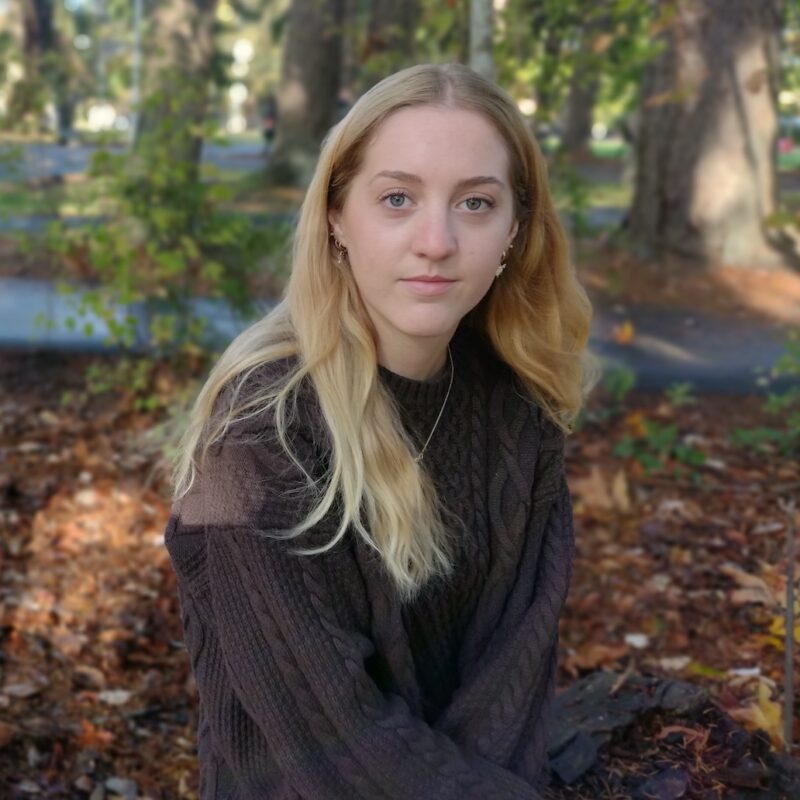
Hannah Seaton, North Vancouver, Canada